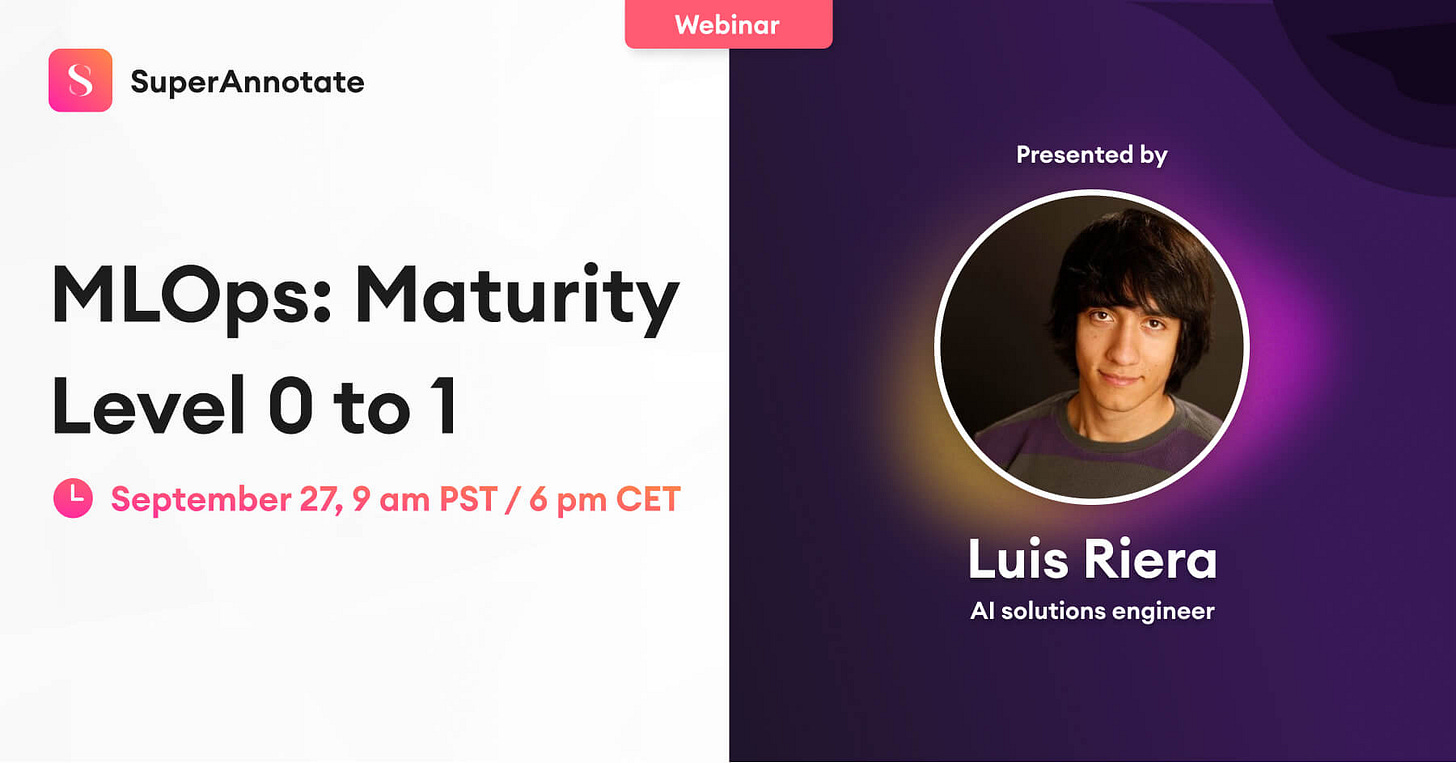🔥 The PyTorch Foundation
Weekly news digest curated by the industry insiders
📝 Editorial
It’s a peculiar fact that the dominating technical stacks, TensorFlow and PyTorch, are both open-source but sponsored by large tech companies, Google and Meta, respectively. While there is nothing intrinsically wrong with this model, as tech incumbents are among the main adopters of ML frameworks, it would be welcomed to see these stacks be governed by independent parties in a true open-source spirit. Last week, Meta took an important step in that direction by announcing that PyTorch will move to an independent foundation.
The PyTorch Foundation was incubated under the Linux Foundation, which brings a level of credibility and process robustness to this new effort. Finding a neutral home was the main catalyst for the creation of the PyTorch Foundation, but there are other intangibles such as robust governance, community ownership, transparency and fairness that are much needed in a project of this scale. Together with Meta, Google, Microsoft, NVIDIA and AMD will be members of the governing board. Adopting PyTorch is not an easy endeavor by any stretch. The project can be considered one of the largest and most successful open-source efforts in history, with over 65,000 commits and 2400 active contributors. The Linux Foundation certainly has the knowledge and infrastructure to become an incredible home to catalyze the next phase of PyTorch’s growth.
🔺🔻TheSequence Scope – our Sunday edition with the industry’s development overview – is free. To receive high-quality content about the most relevant developments in the ML world every Tuesday and Thursday, please subscribe to TheSequence Edge 🔺🔻
🗓 Next week in TheSequence Edge:
Edge#227: we explain autoregressive text-to-image models; discuss Google’s Parti, an impressive autoregressive text-to-image model; explore MS COCO, one of the most common datasets in text-to-image models.
Edge#228: we deep dive into how Amazon is improving BERT-based models used in Alexa.
Now, let’s review the most important developments in the AI industry this week
🔎 ML Research
AlphaFold Release Principles
DeepMind published an insightful blog post about the core principles that set the boundaries for the public release of the AlphaFold model →read more
LOLNeRF
Combining Generative Latent Optimization (GLO) and neural radiance field (NeRF), Google Research built a framework that learns to model 3D structure and appearance from collections of single-view images ->read more
Scaling Alexa to 1000 Languages
Amazon Research published a blog post detailing how self-supervised learning, knowledge distillation and distributed training were used to scale Alexa’s learning across 1000 languages →read more
PaLI
Google Research published a paper detailing PaLI, a unified language-image model that can work effectively across 100 languages →read more
📌 Event:
Setting up an efficient ML pipeline is crucial for operationalizing services and products. The ability to automate the necessary parts of the pipeline allows ML engineers to reliably flow data from source(s) to destination(s). Intermediate steps in the pipeline allow for transformation, versioning, and storing for later data consumption. ML training experiments can be more easily integrated into a continuous process instead of relying on manual execution of partial portions of the ML pipeline.
This webinar will walk through a Sports Analytics project that uses real-world data to showcase the difference between an ML pipeline at maturity stage 0 and maturity stage 1. It will discuss how to integrate and leverage SuperAnnotate as the Labeling/QAing/Feature Extraction tool in our ML workflow. The data extracted with the help of SuperAnnotate will serve as the input for training a series of models, which in turn are used to implement the real-world solution to our Sports Analytics problem.
🤖 Cool AI Tech Releases
PyTorch Foundation
PyTorch announced that it’s transferring its ownership to a new foundation under the Linux Foundation umbrella →read more
Feathr Joins the Linux Foundation
Feathr, the feature store platform pioneered by LinkedIn, has joined the LF AI & Data Foundation →read more
TensorFlow Updates
The TensorFlow team published a series of upcoming updates to its platform, including MediaPipe Studio, a low code solution for on-device ML →read more
🛠 Real World ML
Real-Time Analytics at LinkedIn
LinkedIn discusses its architecture based on Apache Pinot powering real-time analytics at the social network giant →read more
💸 Money in AI
MLOps startup Diveplane raised $25 million in Series A funding led by Shield Capital. Hiring in Raleigh/US.
AI assistant Winn.AI raised $17 million in seed funding led by Insight Partners and S-Capital.
RiskOps platform Federato raised $15 million in Series A funding, led by Emergence Capital. Hiring in San Francisco/US.
Data engineering, analytics and AI solutions company Sigmoid raised $12 million in a Series B investment round led by Sequoia Capital India. Hiring in Plano/US and Bengaluru/India.
Generative AI-startup Rephrase.ai raised $10.6 million in a Series A financing round led by Red Ventures. Hiring.

